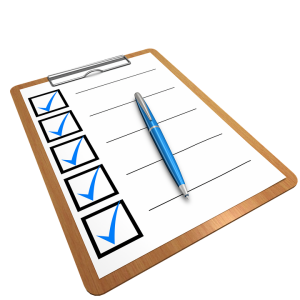
Image credit to ijmaki on Pixabay
Performance management refers to the process in which managers and employees work together to plan, monitor and review an employee’s work objectives and contribution to the organization. The ultimate goal of performance management is to improve employee effectiveness.
An effective performance management process is job-specific, practical and constructive. It includes positive feedback for good accomplishments as well as constructive feedback when improvement is needed.
To get the best results, performance management requires open communication between employees and managers. Employees are motivated through recognition of their achievements. In addition, properly conducted performance management processes identify areas of poor performance and provide training opportunities for improving work efficiency.
Performance management serves to support staff in conducting their work and achieving their career goals. As such, the systems of performance management must align with the organization’s culture and strategic direction.
Performance Management Phases
A performance management process consists of three crucial steps: planning, monitoring and reviewing.
Planning

Image credit to StartupStockPhotos on Pixabay
The planning phase involves both managers and employees who work together towards setting performance objectives and measurements. Performance objectives and indicators need to conform to the SMART concept, meaning that they must be specific, measurable, attainable, realistic, and time-bound.
During this phase, the employee’s job description is reviewed and updated wherever applicable. Also, the links between job description, the employee’s work plan and the organization’s goals are identified and reviewed.
Managers then meet with employees to develop a work plan that details tasks, expectations and measures of standards to evaluate performance. During the planning phase, three to five annual key performance objectives should be identified. These are core objectives critical to success at the employee’s job position and if they are not met, the employee’s overall performance will be labelled unsatisfactory.
For both new and veteran employees, the planning phase involves the definition of individual training objectives required to develop necessary work skills. This phase also serves to identify career development objectives as part of long-term career planning.
Monitoring
Continuous monitoring of employee performance is an essential part of performance management. Employees should not be micro-managed; instead, the managers observe individual behaviors and team dynamics with regards to achieved results. The manager and employee assess the employee’s progress, define challenges and solutions, and suggest adjustments to the work plan if the employee needs additional support.
The monitoring phase should include opportunities to address any identified obstacles. Positive feedback can be an important motivator. Constructive feedback, on the other hand, should always be directed to the action, not the employee as a person. An important aspect of constructive feedback is listening to the employee and agreeing on the plan of action to be followed. The action plan should be concise, defining the consequences in case the unwanted behavior continues.
Reviewing
Managers should meet with each employee at the end of a specified review timeframe. This allows them to summarize employee performance over the predetermined period while highlighting achievements and communicating areas for improvement. The process of performance evaluation is often referred to as performance appraisal.

Image credit to animatedheaven on Pixabay
An important component of performance appraisals is employee self-assessment. Using performance plans as a guide, employees complete a standard form providing their own view of their performance prior to the review. Comparison with manager appraisal can help identify gaps between employee perceptions and management view, allowing for in-depth discussion of factors affecting the employee’s performance.
Managers should not base their reviews on overall perceptions or singular incidents. Instead, they must focus on documentation gathered throughout the monitoring phase. Also, management should avoid assessment of issues not covered by the performance plan or not specifically addressed with the employee. This helps ensure that managers deal with specific challenges as they occur.
In the assessment meeting, the employee and management should summarize employee performance with regards to planned goals. They should also discuss any unexpected obstacles toward realizing performance objectives. Any challenges and areas that need further development must be carefully documented.
At the end of the appraisal meeting, both employee and manager should sign off on the final performance appraisal document. This verifies that all the key points were discussed with and understood by the employee, though not necessarily agreed to. The employee should have the opportunity to append any documentation or comments. In addition, copies of the final review should be given to the employee for reference, as well as placed in their employee file.
To conclude, performance management process requires managers and employees working together during planning, monitoring, and review phases. The process allows management to provide each employee with a clear assessment of their performance in meeting company requirements and job description standards.
Planning involves defining and communicating development and career objectives. A monitoring phase serves to both recognize employees’ accomplishments and define areas of job performance that need improvement. Monitoring also includes providing an employee training plan and conveying consequences for continued improper behavior. All performance management elements should be documented for a regular review meeting, in which individual employees and managers discuss employee performance over a predetermined period.
Properly conducted performance management helps to ensure that employee job performance aligns with company standards and policies, while offering each employee recognition for their accomplishments and opportunities to improve weaknesses. The ultimate goal is to develop better individual and overall work efficiency.
Our Solution
Developing an effective performance management system can be a complicated task that requires considerable time. We strive to make this process easier for you by providing detailed performance management coaching. Our company guides your managers through each phase of planning, monitoring, and reviewing employee performance. Our experts work together with your employees and managers to identify common and individual work objectives.
Extensive experience in performance management training allows us to quickly identify your employees’ accomplishments, as well as areas that require improvement. We provide tools for continuous progress monitoring and employee training. Our strategic performance management systems will improve individual employee performance and enhance the overall effectiveness of your organization.

